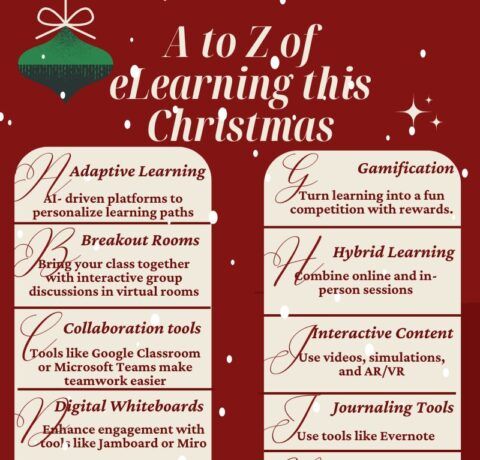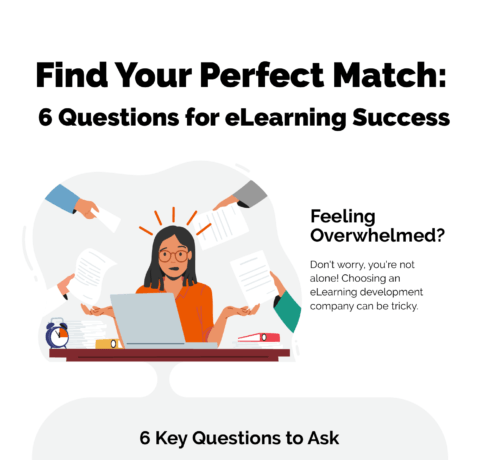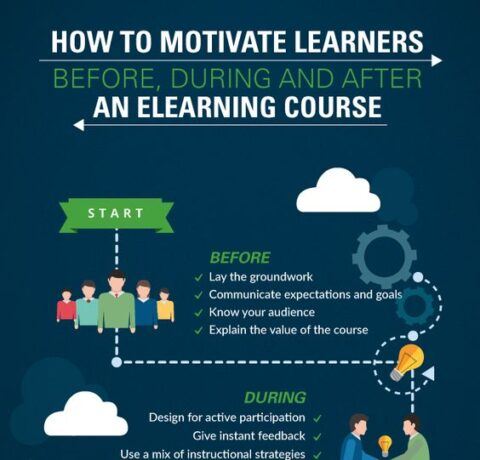How To Study Online Courses Effectively (11 Useful Tips) Infographic
Having online classes is a great thing. You never have to turn up to a class in person, just sit with your computer at home, and receive instructions from your lecturer.
Even though online courses can be a more convenient, and cheaper means of learning, sometimes concentrating on studying can be difficult. There are a lot of distractions; from social media, emails to the temptation of sleeping especially when you study on your bed.
For those who have to work while pursuing a masters degree online, the best trick is to follow a strict schedule. You’ll have to work out your own best time to receive lessons and instruction.
We've all experienced classroom study in school, but online learning is something completely different.
If you've just enrolled in an online course and you're struggling to keep up, you're not alone...many online learners go through the same issue. Here is an infographic detailing 11 useful tips or strategies for your eLearning success.
1. Choose a study space with reliable Internet access
You will probably need to refer to online lectures and notes when you study. Therefore, you will need a study space where your Internet access will not be interrupted. Internet access will be particularly important during things like study sessions for your class.
2. Create a Study Schedule
Maintaining a strict schedule is vital to success in an online course. Even though you may not be required to attend classes or lectures at particular times, you still need to keep up with the course material on your own time. Therefore, self-discipline is important. Set a time each week to log onto the class and study materials.
3. Be disciplined / Avoid online distractions
It can be hard to stick to a schedule for an online course. However, be strict with yourself about adhering to your schedule. Self-discipline is vital to your success in an online course.
It can be difficult to focus on your online course if you have a social media account open in another tab on your computer. When you’re doing classwork, avoid browsing the Internet, checking your email, and other distractions.
4. Learn Actively
Learning happens when the neurons in your brain are active. To learn effectively, you must engage your mind. Write notes in your own words, recall information – say what you know about a topic without using notes.
5. To Stay motivated
Use motivation tricks to get results. You could study while listening to your favorite music or picture yourself in an hour’s time having completed the task and enjoying a well-earned break.
6. Print out any materials
Sometimes, the internet or your computer can be a distraction. It can be helpful to turn your laptop off at times to study. You should also print out things like a course schedule and syllabus.
7. Take notes on online lectures
Always take notes online as you would during a physical lecture. Sit with a pen and paper and take careful, legible notes in front of your computer. Handwritten notes increase your retention of the material better than typed notes.
8. Test yourself
Even if you don’t have access to practice tests, you can still test yourself by writing down everything you remember after each new chapter or frequently asking yourself questions about what you’re learning.
9. Avoid multi-tasking
Research shows that multitasking reduces the brain’s ability to store new information, so if you’re constantly switching between tasks, all that information will likely be going in one ear and out the other.
10. Take breaks
It’s important to take breaks as you study. Do something fun, like watch TV for a few minutes or go for a brief walk. You will find yourself feeling refreshed and recharged after a quick break.
11. Make friends online
Establish connections with other online learners. You can meet up and study together; share your challenges with them; and try collaborative learning as it promotes student engagement, and deeper understanding.







You can adjust your cookie preferences here.